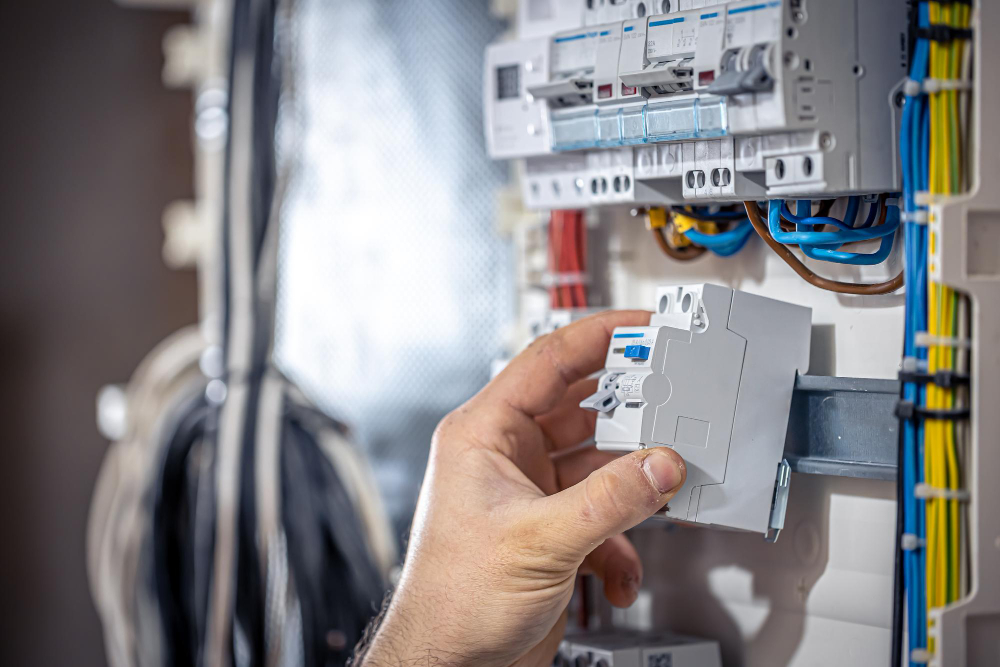Troubleshooting Circuit Breaker Tripping: A Guide for Homeowners

Homeowners often find themselves grappling with electrical issues, and a tripping circuit breaker is among the most common problems faced. While it’s designed to protect your home from electrical hazards like fires and overloads, frequent tripping can disrupt daily life and indicate deeper electrical issues. If you're situated in Winter Park, FL, and are experiencing persistent electrical problems, this guide will help you understand the causes and solutions, and when to reach out to expert electrical contractors like Spectrum Electric.
Understanding Your Circuit Breaker
Before we jump into troubleshooting, it’s essential to understand what a circuit breaker is and its role in your home’s electrical system. A circuit breaker is a safety device that automatically stops the flow of electricity when it detects an overload or short circuit. This prevents overheating and potential fires, safeguarding your home and its inhabitants.
Common Causes of Circuit Breaker Tripping
- Overloaded Circuit
- An overloaded circuit is the most common cause of a tripping breaker. This occurs when too many high-energy-demand appliances are connected to a single circuit.
- Short Circuit
- A short circuit happens when a live wire touches either another live wire or a neutral wire. This can create an excessive current flow that heats up the wires, causing the breaker to trip.
- Ground Fault
- Similar to a short circuit, a ground fault occurs when a live wire touches a grounded portion of the system, like the earth or a grounded metal piece. This is often seen in areas with high moisture, such as kitchens or bathrooms.
- Faulty Appliances
- Sometimes the issue isn’t with your wiring or breaker but with the appliance itself. A malfunctioning appliance can draw excessive current, causing the breaker to trip.
- Old or Weak Breakers
- Circuit breakers can degrade over time due to wear and tear, losing their efficiency. An old or weak breaker might trip unnecessarily.
Step-by-Step Troubleshooting Guide
Step 1: Identify the Tripped Circuit Breaker
- Locate your electrical panel, usually found in the basement, garage, or utility room.
- Look for the switch that’s flipped to the 'OFF' position. This is the tripped breaker.
Step 2: Reduce the Load on the Circuit
- Turn off or unplug devices and appliances connected to the circuit.
- Try to limit the use of high-wattage devices (like space heaters or hair dryers) on a single circuit.
Step 3: Reset the Circuit Breaker
- Move the switch completely to the 'OFF' position and then back to 'ON.'
- If it stays on, you’ve likely solved the problem. If it trips again, there may be a deeper issue.
Step 4: Check for Short Circuits or Ground Faults
- Examine outlets and switches for scorch marks or burning smells, indicating possible short circuits.
- Use a multimeter to test for continuity between wires, identifying faults.
Step 5: Test Appliances
- Plug in appliances one at a time to see if a specific device trips the breaker.
- If an appliance causes the breaker to trip, it may need repair or replacement.
When to Call a Professional
While some homeowners may feel comfortable addressing minor electrical issues, it’s crucial to know when to call in the professionals. Persistent circuit breaker tripping can indicate serious underlying problems that require expert diagnosis and repair.
If you’re in Winter Park, FL, and experiencing ongoing electrical issues, consider contacting trusted electrical contractors like Spectrum Electric. They offer comprehensive services, from diagnosing electrical problems to implementing safe, efficient solutions.
Why Choose Spectrum Electric?
- Expertise and Experience
- Spectrum Electric boasts a team of highly skilled professionals with extensive experience in handling various electrical issues.
- Local Knowledge
- Being based in Winter Park, FL, Spectrum Electric understands the specific electrical needs and challenges faced by local residents and businesses.
- Comprehensive Services
- From routine maintenance to emergency repairs, Spectrum Electric provides a wide range of services tailored to meet your needs.
- Customer Satisfaction
- Known for their commitment to customer satisfaction, Spectrum Electric ensures transparent communication and quality workmanship.
Preventive Measures to Avoid Future Tripping
- Regular Maintenance
- Schedule regular electrical inspections with professionals to identify and rectify potential issues before they escalate.
- Upgrade Electrical Systems
- If your home has an outdated electrical system, consider upgrading it to handle modern energy demands efficiently.
- Distribute Load Evenly
- Be mindful of how you distribute electrical load across circuits. Avoid clustering high-power appliances on a single circuit.
- Install GFCI Outlets
- For areas prone to moisture, such as bathrooms and kitchens, install Ground Fault Circuit Interrupter (GFCI) outlets to prevent ground faults.
Conclusion
While a tripping circuit breaker can be a nuisance, understanding its causes and solutions can help you address the issue effectively. Remember, safety is paramount when dealing with electrical systems. If you're unsure or uncomfortable troubleshooting on your own, don't hesitate to reach out to professional electrical contractors like Spectrum Electric in Winter Park, FL.
Ready to ensure your home’s electrical system is in top shape? Contact Spectrum Electric today to schedule an appointment and enjoy peace of mind knowing your electrical needs are in expert hands.
